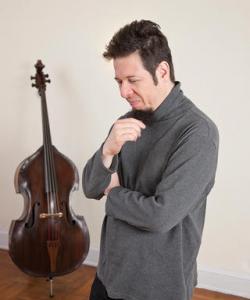Speaker:
Speaker Series:

In the Colombian Pacific region, Afro–Colombian midwives aurally mediate notions of divine origin and biological grounds for human life during ante–natal care. As embodiments of divinities, fetuses have both the capacity to hear (in a biological sense) and to listen in to the already born, and in the event of death, recently–deceased infants too can listen. Ethnographic, ethnological, and phenomenological analyses serve here to redraw the borders between nature and culture by appealing to ontological distributions other than but in relation to naturalistic conceptions of human aurality in developmental terms. Intensive differences between ante–natal and post–natal bodies are juxtaposed to extensive differences between ante–natal humans (hybrids of humans and divinities) and post–natal humans, and divinities. Aurality emerges as the modality across which these differences are constituted. Midwives’ aesthetic (sense perception) work and thought constitute an empirical metaphysics through which regional conceptions of life–death relationality wager a stake on the political definition of life.
Jairo Moreno is Associate Professor at the University of Pennsylvania, Department of Music. His work in music theory addresses the production of knowledge of music and the sonic in modernity from a historic-speculative perspective. He has written a major study of the history of listening in early modern and modern music theory and analysis, Musical Representations, Subjects, and Objects: The Construction of Musical Thought in Zarlino, Descartes, Rameau, and Weber (Indiana University Press, 2004). He is co-editor of the Oxford University Press series Critical Conjunctures in Music and Sound, and co-editor of Econophonia: Music, Value, and Forms of Life (Boundary 2, 2016). He also writes at the intersection of aurality, the politics of aesthesis, and Latin-American popular music in the U.S during the long 20th century. His current project is entitled Syncopated Modernities: Musical Latin Americanisms in the U.S., 1978-2008 (forthcoming, U. of Chicago Press) an archival, critical, and ethnographic study of music’s precarious share in political practices during late capitalism. Most recently, he is researching aural practices and “empirical metaphysics” among midwives in the Colombian Pacific region and in Northeast Brazil. Awards include the Society for American Music 2005 Irving Lowens Article Award for Best Article (“Bauzá-Gillespie-Latin Jazz”), Whiting Fellowship in the Humanities (Yale), ACLS Fellowship (2009-2010), and National Humanities Center Fellowship (2012-2013). A former professional musician, he was bassist in five Grammy Award nominated recordings with the late Latin and Jazz percussionist Ray Barretto (Blue Note, EMI-France, Concord, Fania labels—1989-1997), appeared in numerous other recordings, and performed chamber music with guitarist David Starobin and the Ciompi String Quartet.

